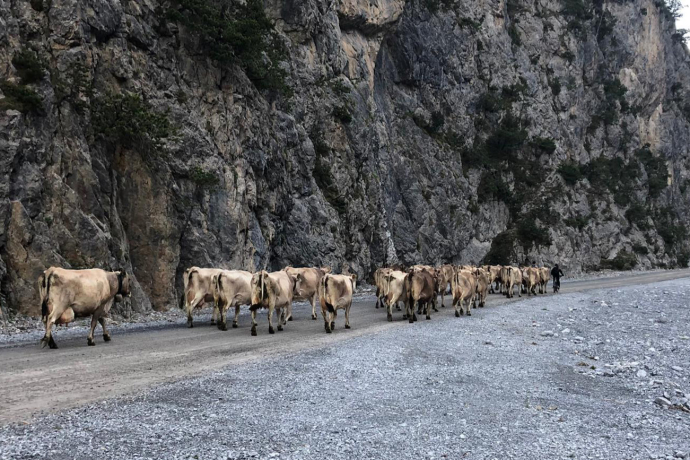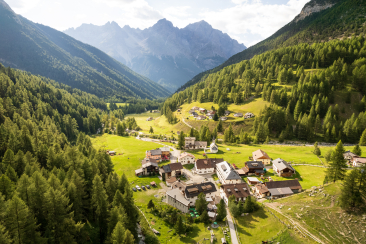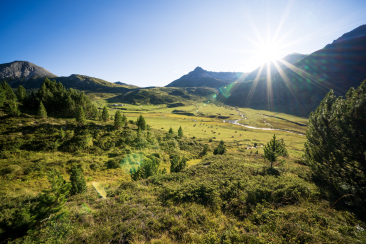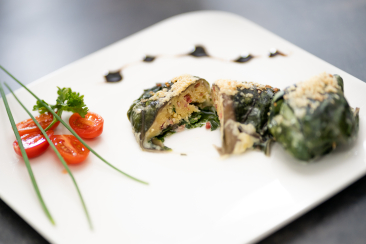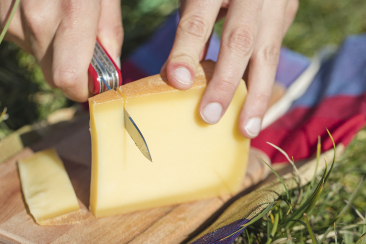At the Alp Astras-Tamangur
From milk to alpine cheese
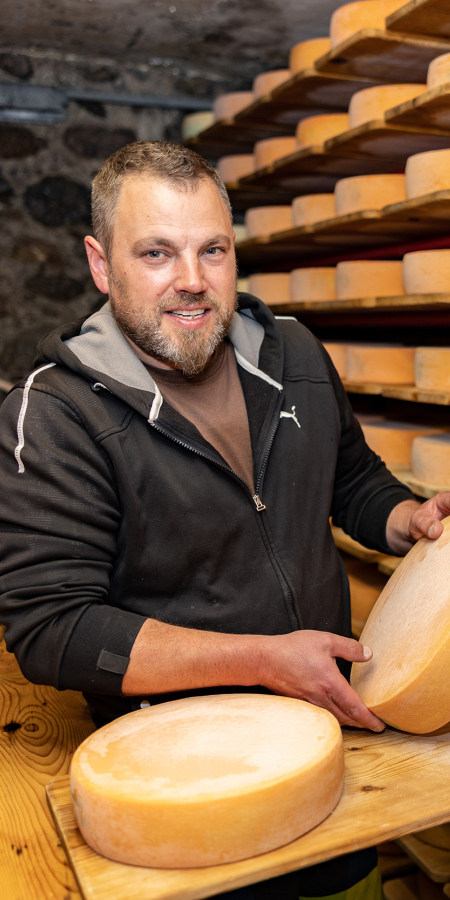
Departure before sunrise
It is quite cold on this very early morning in June. The sky is cloudless and the stars are still twinkling over Scuol, the mineral water village in the Engadine. Shortly after four o'clock, when most people are still fast asleep, farmer Anton à Porta is already wide awake. Because today is Alpaufzug and Anton makes sure that the cows of his farm, which has been in the family for generations, are ready to set off.
A long march of about 20 kilometers lies ahead of them. After crossing the Inn, the Alpine river that contributes to the naming of the Engadine (Rhaeto-Romanic: En = Inn), they head into the impressive and wild Val S-charl, where silver was once mined. From the village of the same name, the trail winds on, deeper and deeper into the side valley, along a rushing mountain stream, the Clemgia. The small group around the alpine elevator now reaches the God da Tamangur, the highest pine forest in Europe. The valley changes, becomes wider and more open. Gently, the mountains retreat a little and reveal the view of the destination, where the cows will spend the summer: The Alp Astras-Tamangur.
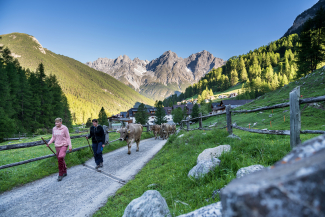
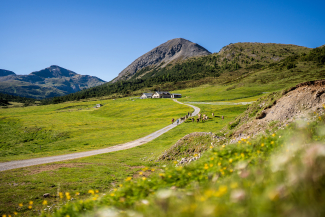
Farmer with passion
Anton à Porta loves his life as a farmer. He likes the varied activities, that no two days are the same and that he can make his own decisions. Even when he was still a child, running around his parents' farm and the surrounding fields, it was clear to him that this was the path he wanted to take. After completing the farm manager school, he decided to take over the farm together with his wife, Leta.
I enjoy working with animals in the outdoors and am proud to contribute to the food supply.
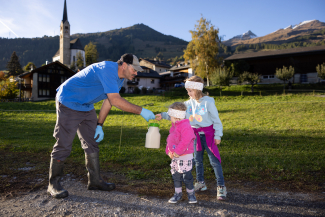
Anton is convinced that, especially in a vacation region like the Engadine, regionally produced food is needed and that guests and locals are also prepared to dig a little deeper into their pockets out of appreciation. Farming in a mountain valley is still real manual work and the wage costs have to be covered. But you know where and how the products are produced. The transport routes are shorter and have less impact on the environment. The added value remains in the region and jobs are secured.
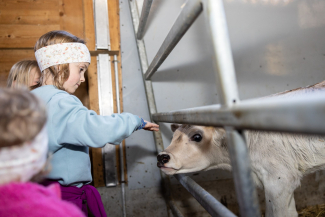
The challenges that this vocation brings, but also the jungle of regulations as well as the increasing bureaucracy also occupy his mind. What will happen to the farm one day when he can no longer work? Will his sons, who are currently pursuing completely different paths, like the idea of taking over the farm? Anton does not have an answer to this question. Succession planning for farmers can be challenging, especially in a mountainous region like the Engadine. The hours are long and the work is physically demanding, which discourages many young people. Many areas cannot be worked by machine due to the topography. The number of farms is continuously declining.
Anton is not discouraged by this. When he looks back after a long day, he knows exactly how valuable his work is for the region and one or two worry lines smooth out.
From milk to alpine cheese
Meanwhile, the cows enjoy the lush grass, provided with fine alpine herbs, around the alp Astras-Tamangur. According to Anton, the degree of mineralization here is higher than on the valley floor and contributes to the health of the ruminants. This makes the alp butter a bit creamier and gives the cheese made here its special flavor.
Speaking of cheese, this is made by hand by Marcel Adam and his assistant. The family man has been an alpine dairyman in Val S-charl for over 20 years. The native of South Tyrol arrives in the spring and only leaves the valley again in the fall. In between, he lives on the alp without interruption. Only his wife and his employees occasionally leave this remote paradise to go shopping.
It's like an addiction. As long as my health allows it, I do it with heart and soul.
But life on the alp is not quite as romantic as one might imagine. You have to work from dawn to dusk, in all weathers. The animals must be cared for and cannot wait.
However, according to Marcel, helpers are very welcome, but they should be aware that there is not much time for rest and enjoyment. Also the close living together over 24 hours on the day may not be underestimated. But in the evening you know exactly what you have achieved, says Marcel with a beaming smile.
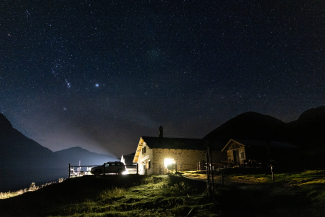
Marcel's day begins long before sunrise, when the stars are clear and numerous thanks to the lack of light sources in Val S-charl. The cows have to be rounded up from the surrounding pastures and milked. Part of the milk is then put into a cauldron and slowly heated while being stirred constantly. Marcel adds lactic acid bacteria cultures for the breakdown of the milk sugar and subsequent ripening, as well as natural rennet to coagulate the milk.
Once this is done, the cheese harp is used to cut the mixture evenly and continue stirring. Finally, Marcel uses a cloth to pull the cheese out of the kettle and places it in several molds where it is pressed. After this procedure, the cheese is then allowed to rest in a cellar. During the storage process, it is further refined before finally being offered for sale in the regional stores in the Lower Engadine.
However, a piece tastes best after a hike or mountain bike tour directly at the Alp Astras-Tamangur in the cozy «ustaria», with a magnificent panoramic view over the valley and the surrounding mountains.
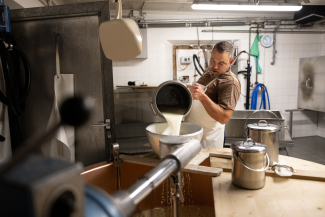
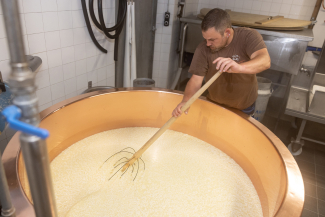
But Marcel does not have time to catch his breath. Before the workrooms and utensils are thoroughly cleaned, fresh alpine butter is made. For this purpose, the cream that rises from the raw milk in a milk cooling vat after pasteurization is used. Marcel shapes the butter by hand and a soft scent pervades the room.
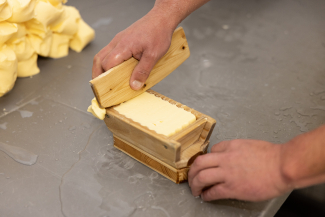
It is now morning and Marcel and his team have been on their feet for about five hours. Their stomachs are rumbling and it is finally time for a short breakfast break– and of course the fine alpine cheese Tamangur is not to be missed.
The cows remain in Val S-charl for three months before they are driven back through the valley to Scuol during the traditional alpine procession.
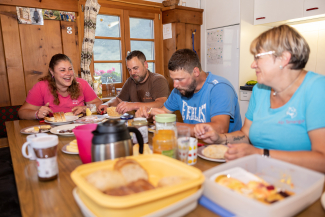
Fresh dairy products from the region
From the approximately 600 to 1200 liters of milk produced daily on the Astras-Tamangur alp, alp cheese and alp butter are made.
Even fresher, the milk can also be fetched directly from many farms, as is the case with Anton à Porta.
Anton visibly enjoys it when locals and guests alike "tap" the milk from him and walk away with a happy face. Being able to provide people with food fills him with pride.
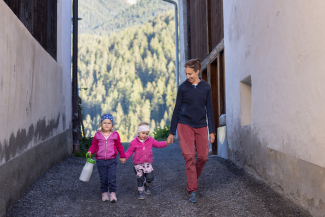
In general, the population benefits from the variety of producers of local (dairy) products. The surrounding cheese dairies in Tschlin, Sent and Ftan are important milk processors and offer different, tasty specialties.
As former president of the Chascharia Engiadinaisa in Bever, it is very close to Anton's heart to stand up for the dairy industry and to be able to provide people with regional food.
Text & pictures: Dominik Täuber.
More impressions
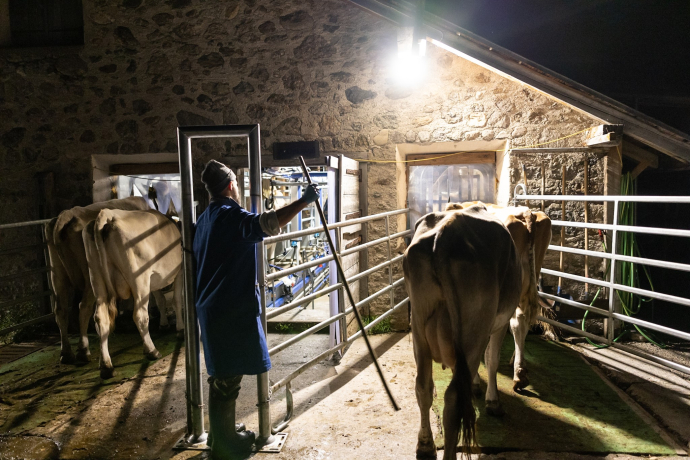
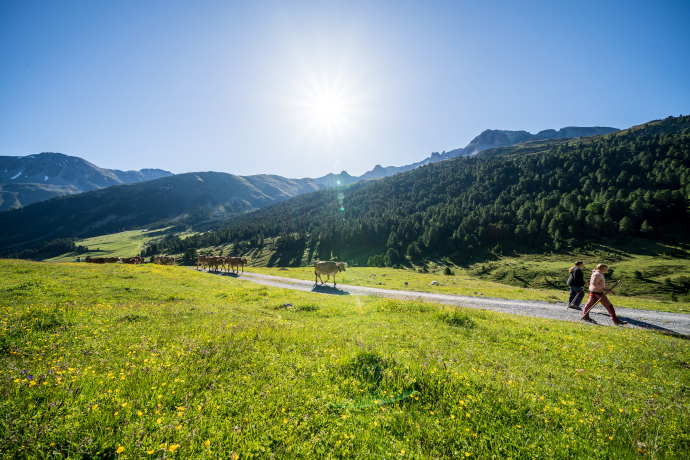
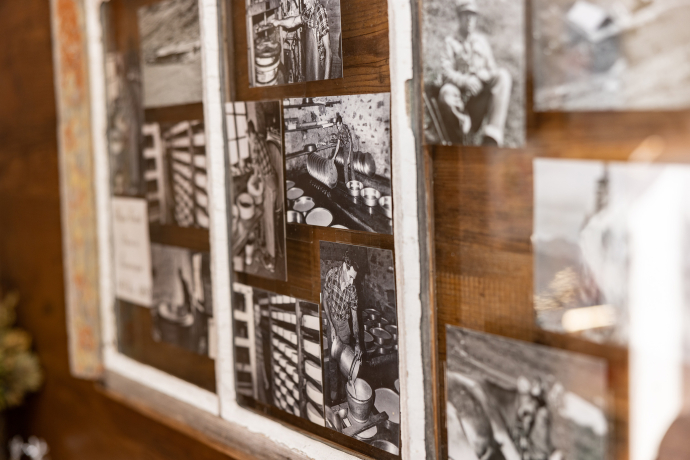
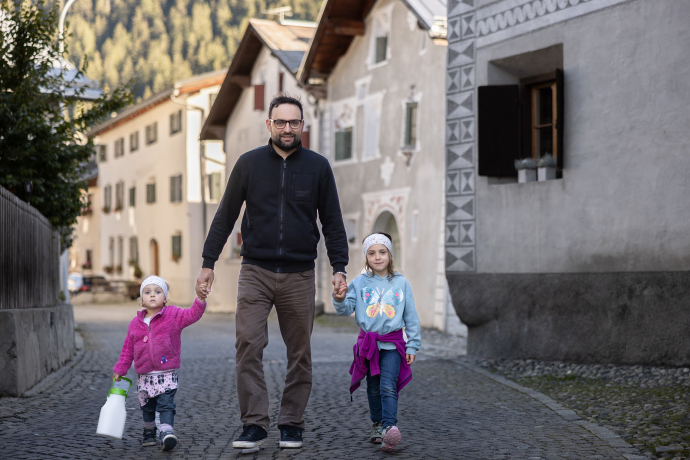
Show all 10 images
